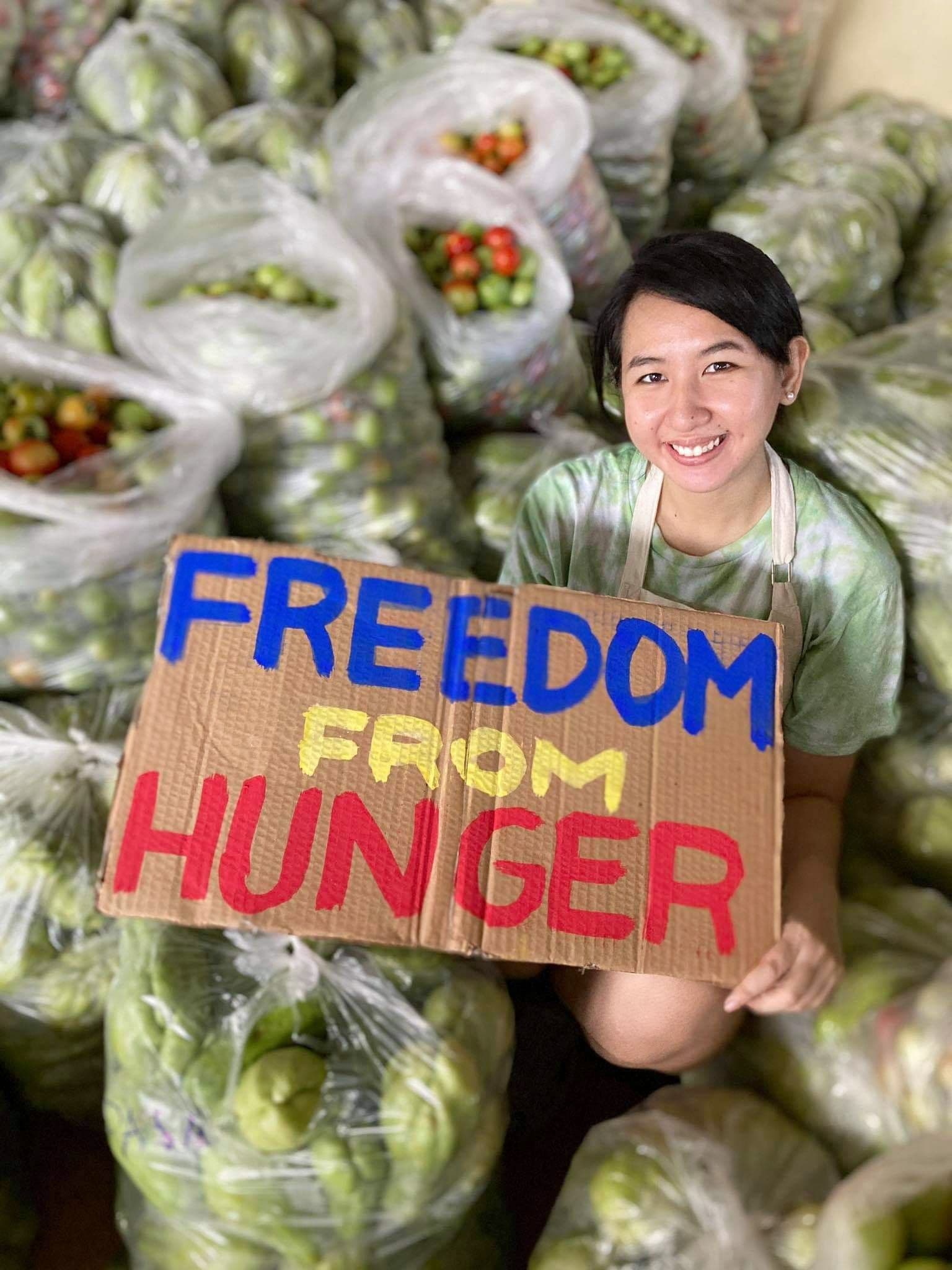Tesla and SpaceX CEO, Elon Musk, tweeted last Sunday that he was willing to consider a proposal from a United Nations official after saying that a donation of $6 billion USD from one of the world’s wealthiest people could help end world hunger. Elon Musk responded by challenging the official to state “exactly how” the money would solve world hunger.
If WFP can describe on this Twitter thread exactly how $6B will solve world hunger, I will sell Tesla stock right now and do it.
— Elon Musk (@elonmusk) October 31, 2021
This raises the question of whether private entities should have a social responsibility to provide and give back or if international institutions are capable of eliminating global problems on their own. While the answers and opinions on it vary, one particular individual from the Philippines has given an alternate solution: direct action and community involvement by individuals.
Twenty-six-year-old Ana Patricia Non set up a bamboo cart filled with food outside her house during the height of the COVID-19 pandemic this past April. The cart had a few canned goods, rice, fresh fruits and vegetables, and a sign that said “Take what you need, give what you can.” Unknown to her, this would start one of the biggest acts of kindness throughout the whole country. They were called “Community Pantries”, a place where thousands of jobless Filipinos were able to feed themselves thanks to the generosity of the whole community. In a few days, more Community Pantries opened in neighboring cities; in a week, it spread throughout the provincial regions. Today, countless pantries have opened in the whole archipelago acting in the same fashion as the first “Maginhawa Community Pantry”.
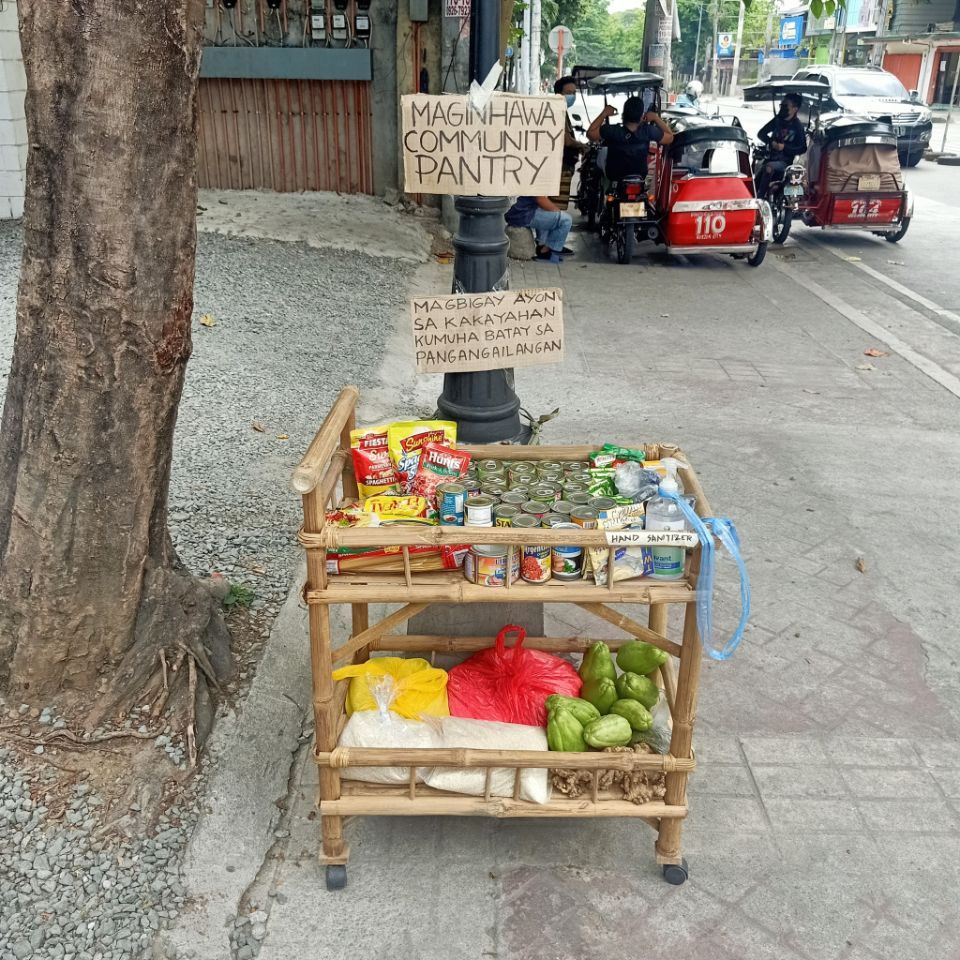
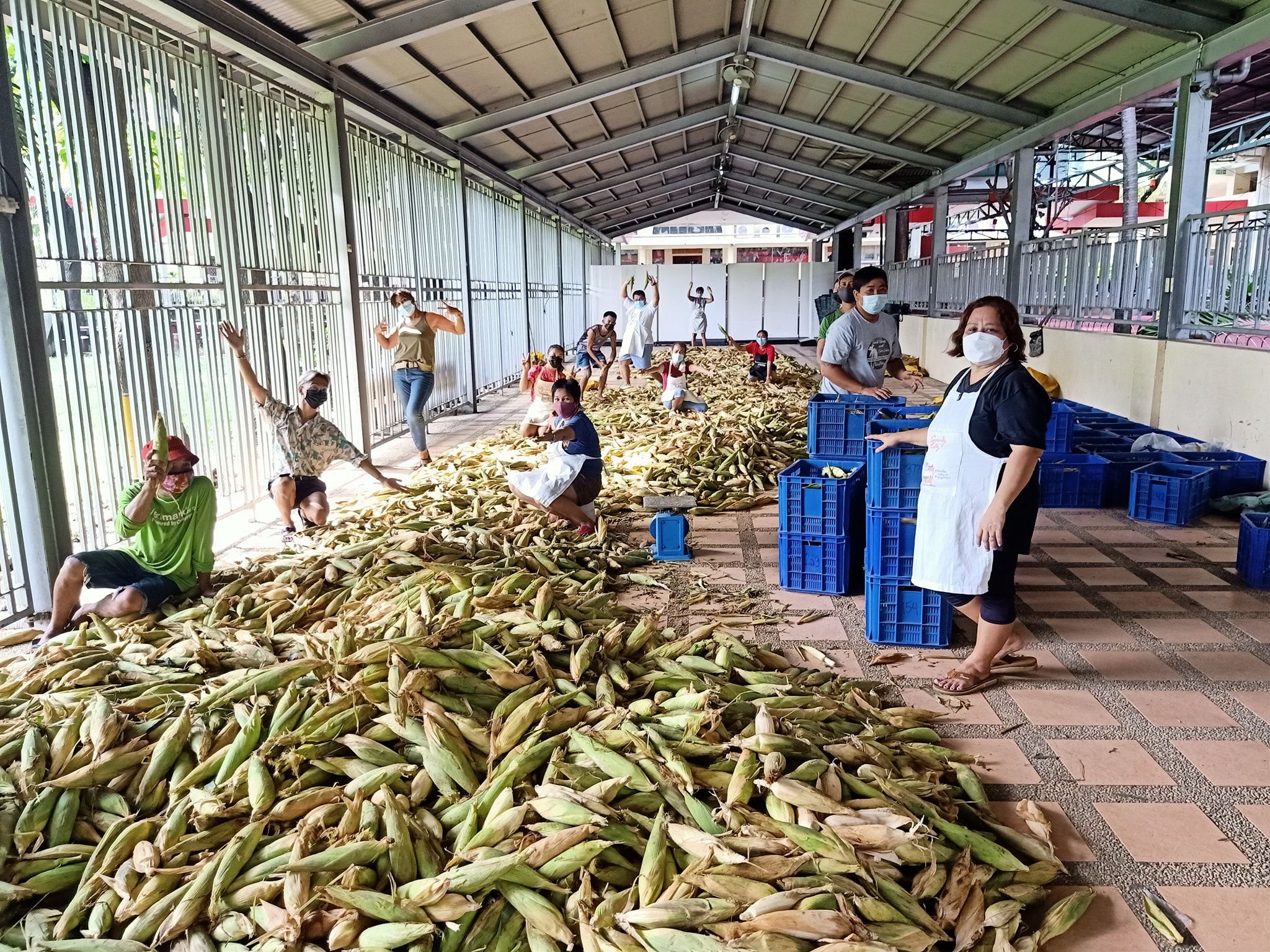
The Community Pantry in Maginhawa St. that started the nationwide pantry movement. Patricia Non heading one of the biggest food security movements months later. Tons of fresh vegetables worth one $ETH arriving at their receiving area.
In an interview with Patricia Non by Redlion Studios contributor, Captain Palawan, she said that one of her reasons for starting the Maginhawa Community Pantry was the lack of government action even after a year of the pandemic: “I’m tired of complaining. I’m tired of inaction.” This statement came from the fact that the Philippines has been the worst performing country in South East Asia in terms of the COVID-19 pandemic response. She wanted to do something more than just waiting for the government response. And in her small act of kindness, she started a nationwide movement that still caters to thousands of Filipinos everyday.
“We don’t discriminate against who can help and will help. Everyone is free to take and contribute to the pantry. It’s not called Patreng’s [her nickname] Pantry, it’s called a Community Pantry.”
When asked how her small pantry became a nationwide phenomenon, she explains that allowing the whole community to be involved in directly helping their local towns or cities paved the way for the Community Pantry’s popularity in the country. She adds that people have always wanted to help but they just needed a push to get started. The bamboo stall was just the first stone that moved hundreds of other boulders. She posits that it is because of Bayanihan, the belief that Filipinos have a natural affinity to work towards a shared goal, that they were able to feed thousands of families despite the lack of government support.
While her actions were received positively by the local population, the national government thought otherwise. Patricia, along with other pantry organizers, were tagged as Communist Terrorists by the Anti-Insurgency Task Force and Philippine National Police. The community pantries were shut down for a day amidst the harassment they received both online and at their locations. Nevertheless, they continued helping their local community.
This raises the question of whether local or international institutions are the primary key factors in solving food security issues. As shown by Patricia’s grassroot initiatives, community involvement and direct action has helped more people than the bureaucratic processes found in almost every large institution. While there are plenty of NGOs and organizations that have been helpful in alleviating food security issues worldwide, the simplicity of the Community Pantry is worth thinking about.
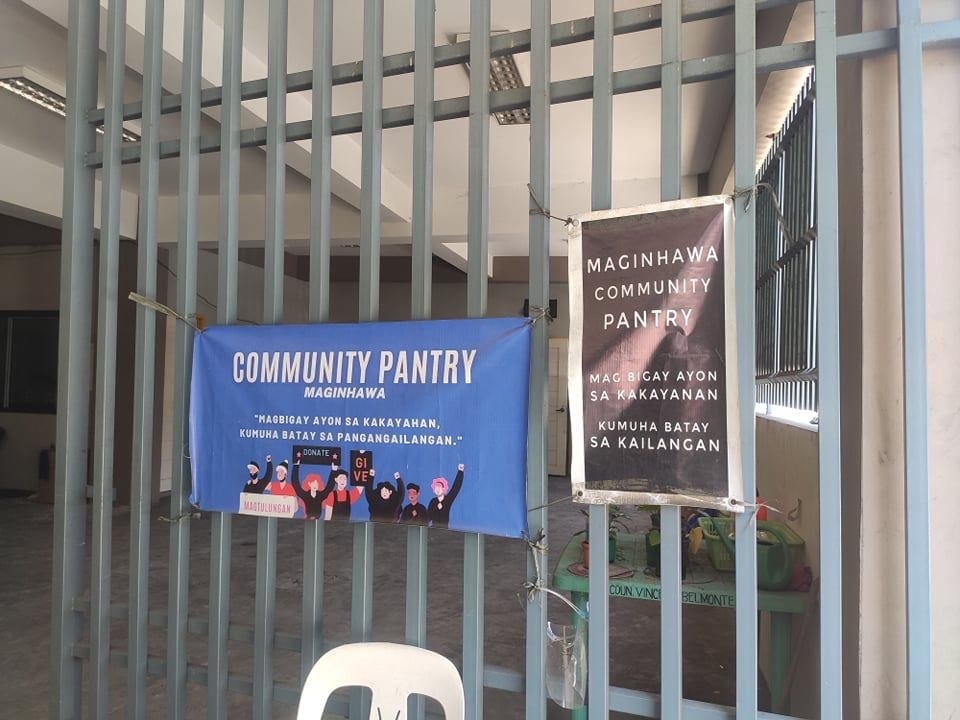
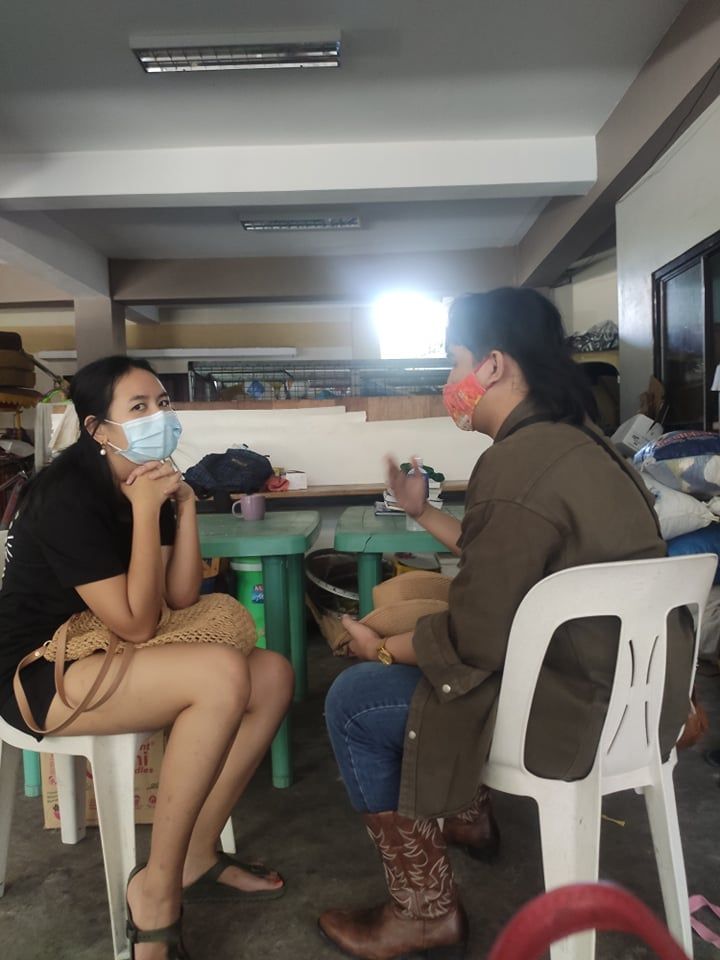
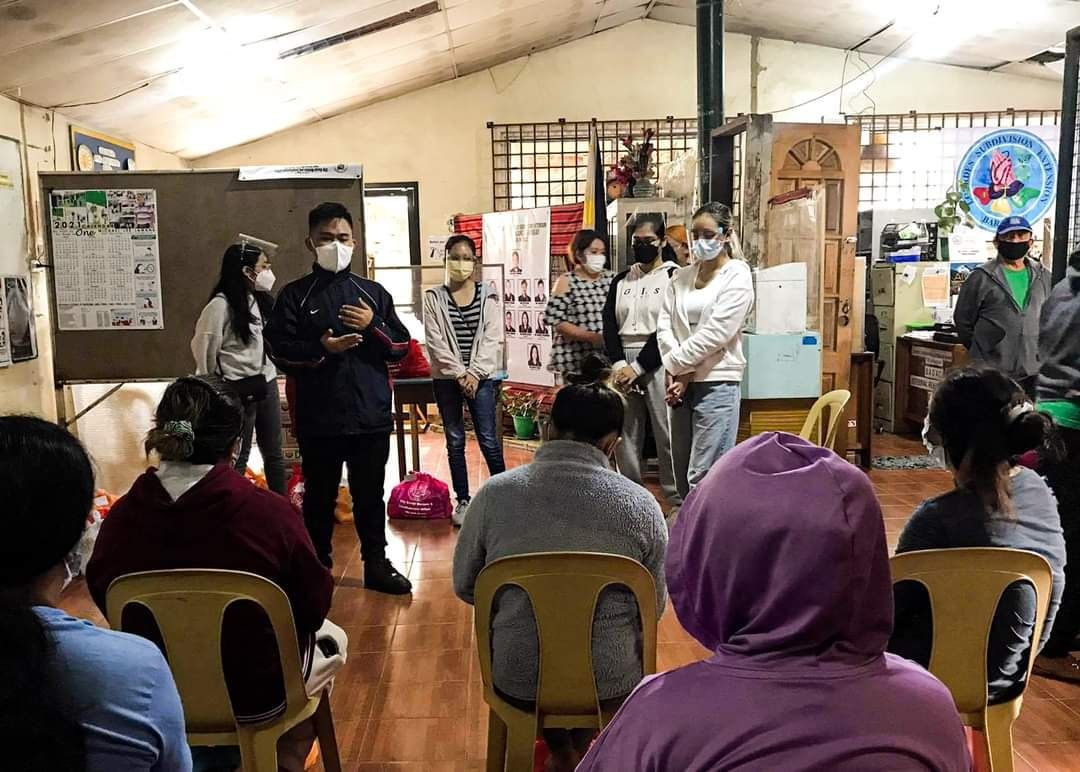
The facility drop-off point for donations and food delivery in Maginhawa. Patricia Non being interviewed by Captain Palawan. Pantry Volunteers from Northern Luzon organizing relief efforts after tropical storm Maring devastated the region last October 11.
With the advent of decentralized finance, more people have started to pull away from relying on traditional financial institutions. The ecosystem created by blockchain technology and smart contracts have shown that the absence of the traditional “middle-man” has created a newer and better system for finance and transactions. In a way, this mirrors how the Community Pantry jumped away from relying on local government help and, instead, towards directly helping other people. An ordinary act with an extraordinary result. This leaves us with one important question: How can cryptocurrency help?


